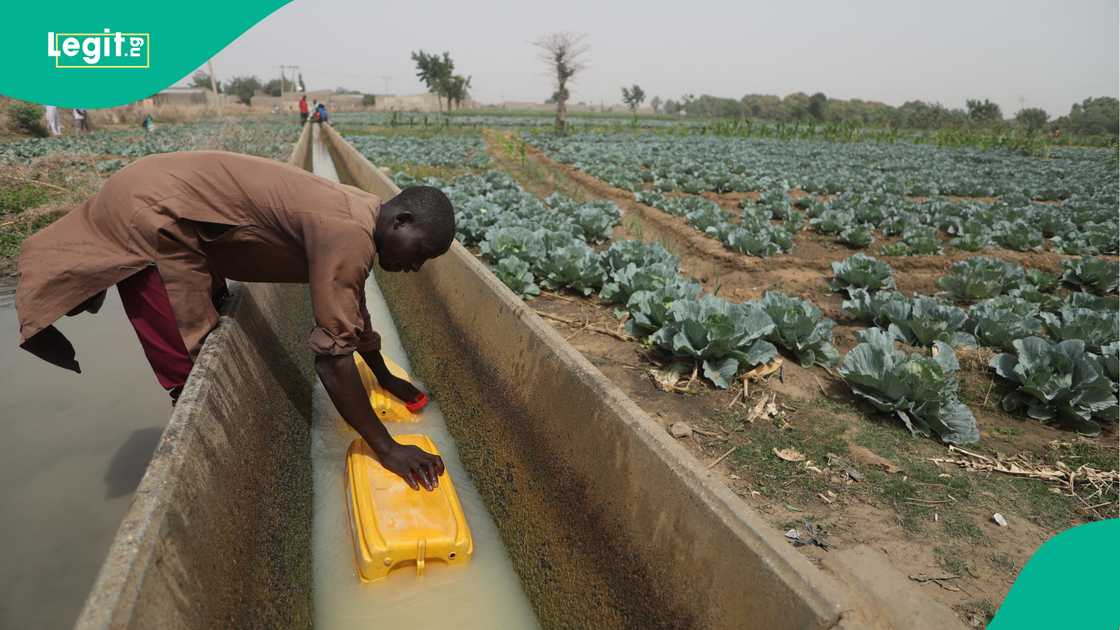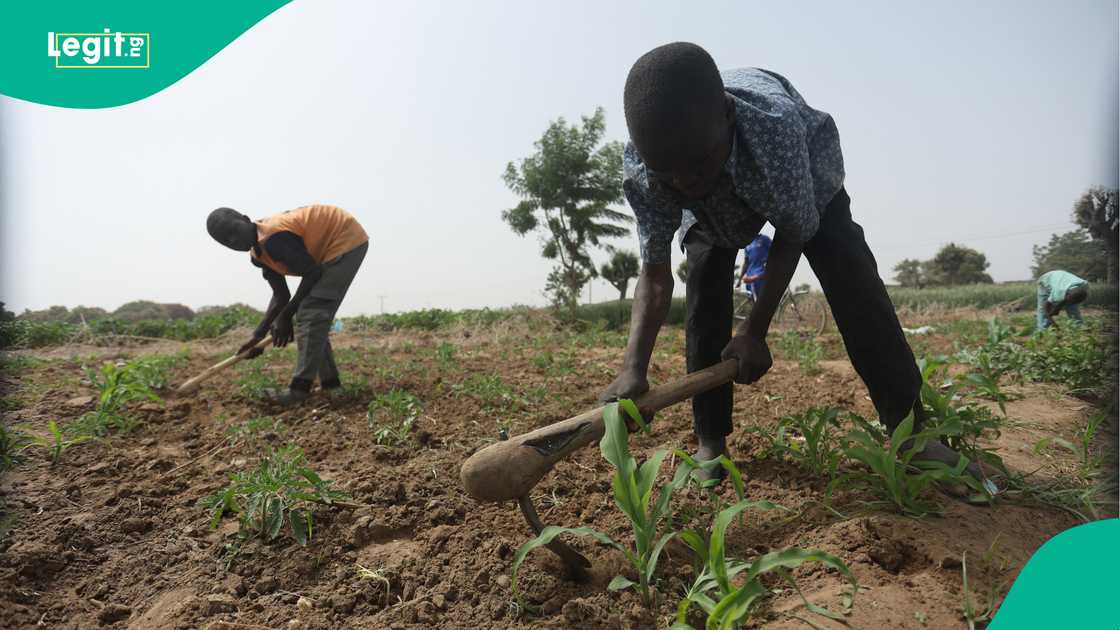Expert Lists 10 Farming Tips to Maximise Yields in Kano This Season
Kura, Kano state - As the farming season is in full swing across Nigeria, the nation's agricultural heartbeat is pounding stronger than ever. With the rains pouring down and the fields ready for planting, farmers are busy tending to their crops, hoping for a bountiful harvest.
In an interview with Legit.ng, Abubakar Yahaya Muhammad, a Senior Agronomist at Indorama Fertiliser Company and head of the Indorama Agricultural Development Centre (IADC) in Kura, Kano state, shared 10 actionable tips to help local farmers improve their yields and farm more efficiently.

Source: Getty Images
Amid the optimism of a bountiful harvest, lingering questions on how Kano state farmers can boost crop yields and what innovations can enhance food security, Legit.ng, in this article, listed the expert's tips on possible ways to improve food cultivation for farmers.
Many farmers underestimate or overestimate their land size, leading to improper use of seeds, fertilisers, and pesticides.
Measuring your farm correctly ensures optimal input application. Use free mobile apps like “Field Area Calculator” or “GPS Field Area Measure” to get precise measurements.
Soil testing reveals nutrient levels, helping farmers apply the right fertilisers in the right amounts. In Kano, Indorama Fertiliser Company offers free soil testing; just visit their centre in Kura for analysis.
Poor-quality seeds lead to poor yields, no matter how fertile the soil is. Always source certified seeds from trusted suppliers.
Overcrowding or excessive spacing reduces yield potential. For example, Maize, 53,000–55,000 plants per hectare (20cm between plants, 75cm between ridges) can yield 50–70 bags per hectare.

Source: Getty Images
Organic manure (cow dung, poultry waste) improves soil structure and moisture retention, and chemical fertilisers provide immediate nutrients. So a balanced approach ensures long-term soil health.
For example, Maize, Rice, Sorghum, and Wheat need nitrogen-rich fertilisers (Urea). While Soybean, Cowpea, and Groundnut need phosphorus-based fertilisers. Beware of fake products, and buy from reputable suppliers.
Base fertiliser use on soil test results. Or use blanket recommendations from agronomists or extension officers.
If it is organic manure, apply two weeks before planting. If it is NPK fertiliser, apply at planting or just after emergence. If it is Urea fertiliser, apply during vegetative growth (not at the reproductive stage).
To minimise losses (evaporation, leaching), place fertiliser 4–5cm deep in the soil and cover it (ideal for maize, sorghum, millet).
Wear protective gear (gloves, masks, boots, goggles). Spray early morning or late evening to reduce evaporation. Always follow recommended dosages, and wash up after use.
Legit.ng previously reported that the smallholder farmers across Kano state have raised urgent concerns over the federal government's failure to provide meaningful support to agriculture.
Kano is one of Nigeria's agricultural powerhouses. Farmers however say they face crippling challenges, warning that the nation's food security is under severe threat.
Some of the challenges mentioned by the farmers include exorbitant input costs, lack of mechanisation, and looming flood risks.
PAY ATTENTION: Сheck out news that is picked exactly for YOU ➡️ find the “Recommended for you” block on the home page and enjoy!
Source: Legit.ng












